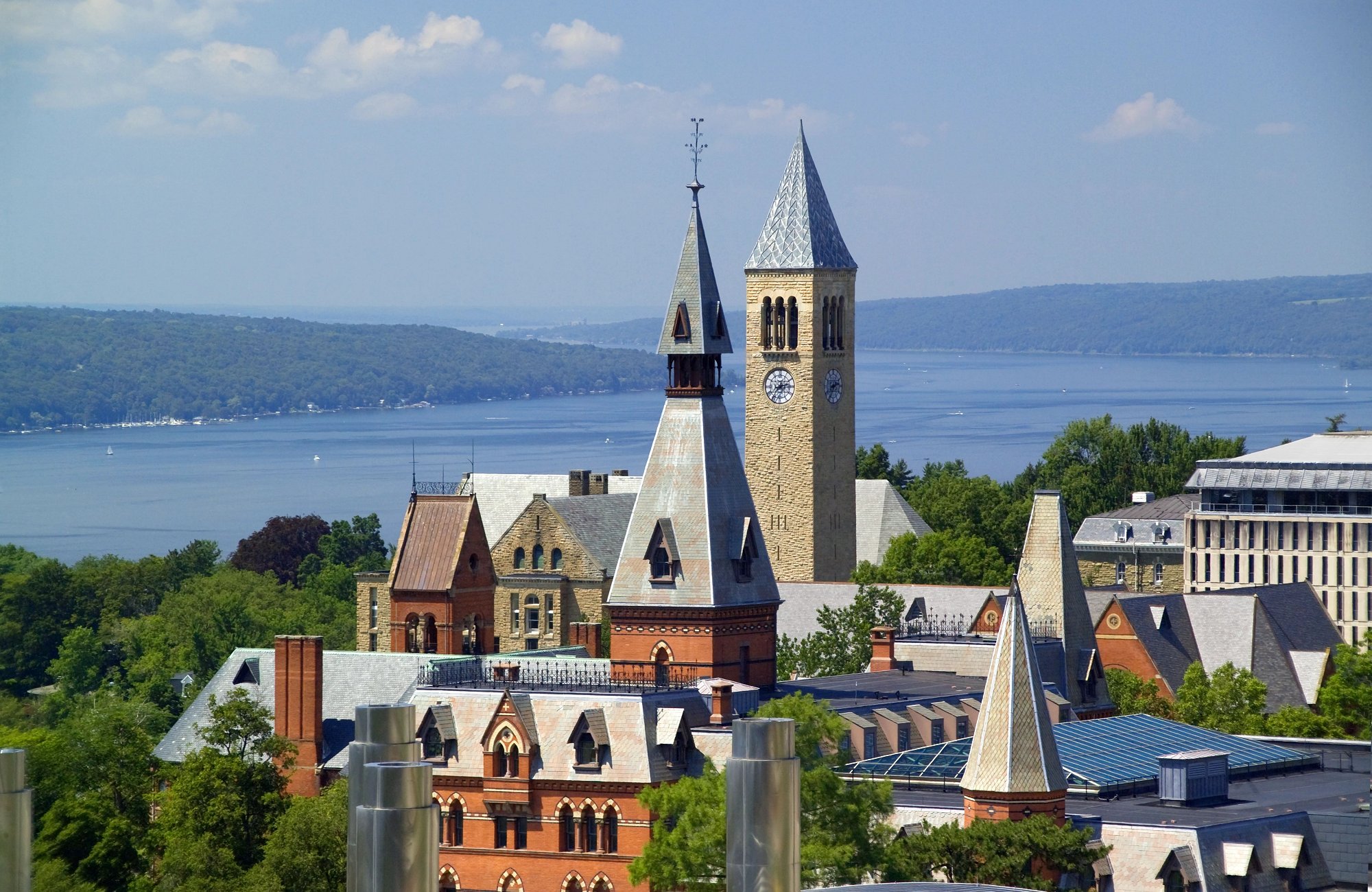Why Cornell and Why Now?
Cornell has a long history of excellence and interdisciplinary engagement in climate and sustainability science, including driving advancements in research around sunlight reflection methods (SRM). On this issue where we need actionable science led by sound, broadly inclusive decision-making — and need that now — and no other university in the world is as poised to guide the field forward as much as Cornell.
The task is clear: We must anticipate and model the multi-sector impacts and quickly advance the development of appropriate strategies for this uniquely contested, but potentially essential, area of frontier science.
Our Researchers
Cornell’s commitment to moving forward the science of SRM is most strongly exemplified by its pioneering researchers — prominently including Douglas MacMartin (Cornell Engineering/Mechanical and Aerospace Engineering) and Daniele Visioni (Cornell CALS/Earth and Atmospheric Sciences) who are breaking new ground in understanding its feasibility and effects.
MacMartin, an associate professor in Cornell’s Sibley School of Mechanical and Aerospace Engineering and a faculty fellow at the Cornell Atkinson Center for Sustainability, has been pioneering research surrounding SRM for over 15 years. His work, which utilizes tools from engineering dynamics, represents a long-term, strategic commitment to understanding where SRM might fit as part of a broader climate strategy.
Joining him in this work is Visioni, an assistant professor in Cornell’s Department of Earth and Atmospheric Sciences and a faculty fellow at Cornell Atkinson, with deep expertise in climate modeling, multi-model intercomparisons, and a large network of collaboration with research teams in developing countries.
Their innovative research primarily focuses on climate model simulations that aim to reduce uncertainties regarding when, where, and what quantity of aerosol to inject, and the potential corresponding climate effects. These complex models investigate multiple scenarios rather than only one future pathway, a comprehensive strategy that proves vital when conducting research with the goal of influencing future policy. They also study “natural proxies,” such as volcanic eruptions or aerosol emissions from international shipping, as a tool to better understand the earth system response to potential SRM.
As part of this critical work, MacMartin and Visioni collaborate with experts in other disciplines at Cornell and at many other universities and global organizations to further the efforts to address climate change.
Our Approach
Cornell’s interdisciplinary approach emphasizes the importance of a diverse and balanced portfolio of climate research. Collaboration on climate solutions is the foremost goal of The 2030 Project, a university-wide initiative that has galvanized hundreds of faculty members across Cornell to develop solutions to reverse the impacts of climate change.
At Cornell, we are firm believers that thorough research informs rational decision-making. Our faculty strive to gather the knowledge needed for scientists, policymakers, and the general public to make informed decisions about the implementation of SRM and other climate change solutions and interventions, and it’s all made possible with support from our donors.

